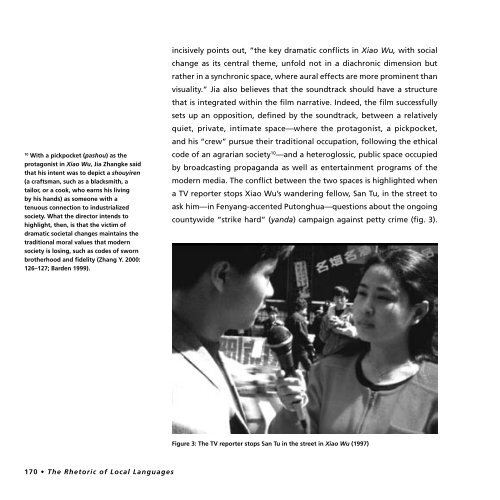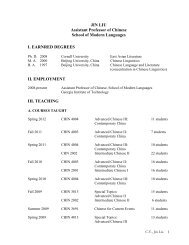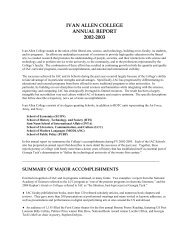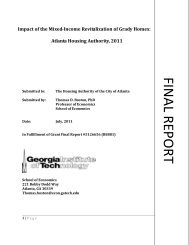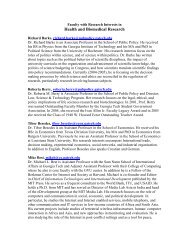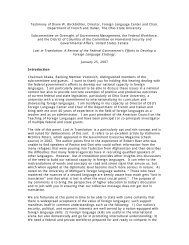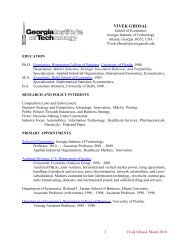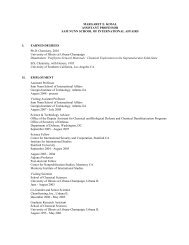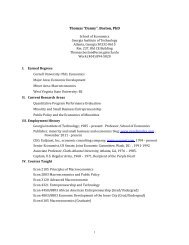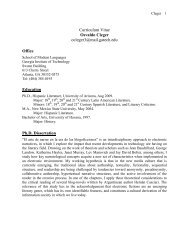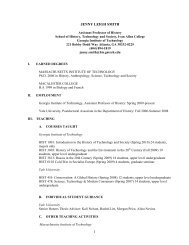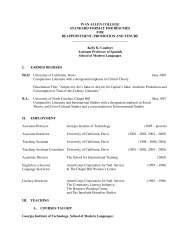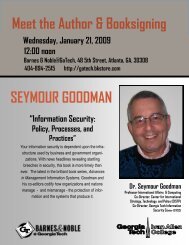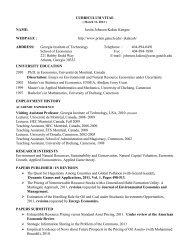Read this paper
Read this paper
Read this paper
You also want an ePaper? Increase the reach of your titles
YUMPU automatically turns print PDFs into web optimized ePapers that Google loves.
10<br />
With a pickpocket (pashou) as the<br />
protagonist in Xiao Wu, Jia Zhangke said<br />
that his intent was to depict a shouyiren<br />
(a craftsman, such as a blacksmith, a<br />
tailor, or a cook, who earns his living<br />
by his hands) as someone with a<br />
tenuous connection to industrialized<br />
society. What the director intends to<br />
highlight, then, is that the victim of<br />
dramatic societal changes maintains the<br />
traditional moral values that modern<br />
society is losing, such as codes of sworn<br />
brotherhood and fidelity (Zhang Y. 2000:<br />
126–127; Barden 1999).<br />
incisively points out, “the key dramatic conflicts in Xiao Wu, with social<br />
change as its central theme, unfold not in a diachronic dimension but<br />
rather in a synchronic space, where aural effects are more prominent than<br />
visuality.” Jia also believes that the soundtrack should have a structure<br />
that is integrated within the film narrative. Indeed, the film successfully<br />
sets up an opposition, defined by the soundtrack, between a relatively<br />
quiet, private, intimate space—where the protagonist, a pickpocket,<br />
and his “crew” pursue their traditional occupation, following the ethical<br />
code of an agrarian society 10 —and a heteroglossic, public space occupied<br />
by broadcasting propaganda as well as entertainment programs of the<br />
modern media. The conflict between the two spaces is highlighted when<br />
a TV reporter stops Xiao Wu’s wandering fellow, San Tu, in the street to<br />
ask him—in Fenyang-accented Putonghua—questions about the ongoing<br />
countywide “strike hard” (yanda) campaign against petty crime (fig. 3).<br />
Figure 3: The TV reporter stops San Tu in the street in Xiao Wu (1997)<br />
170 • The Rhetoric of Local Languages<br />
MCLC 18.2.indd 170<br />
12/20/06 2:01:35 PM


